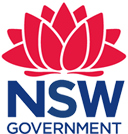
Alternatives to Breastfeeding
Exclusive breastfeeding is the natural way to feed your baby. There are many reasons some families decide not to exclusively breastfeed. Some, for example, express breastmilk and give it via a bottle; some choose to mixed feed, which is breastfeeding and using commercial infant formula; others decide to give only commercial infant formula.
Mixed Feeding
Before you make an informed decision to mixed feed your baby, your breastmilk production needs to be established. This can take 4-6 weeks from the birth. Always breastfeed your baby before offering bottle feeds.
https://www.breastfeeding.asn.au/resources/mixed-feeding
Using Commercial Infant Formula
All infant formula sold in Australian retail shops meets national standards. It is recommended that you use cow’s milk based infant formulas for your baby under 12 months old. Talk to your healthcare provider about appropriate feeding choices. Commercial infant formulas using goat's milk or non-dairy milks, such as soy or rice milk, don’t have the nutrients babies need for healthy growth and development. They should not be used, especially at a young age.
Selecting an age-appropriate, commercial infant formula means your baby will be well fed and well-hydrated. Follow the instructions on the package when preparing it.
Infant formula preparation: in pictures | Raising Children Network
Once baby is one year old, they will get the nutrition they need from solid foods. Commercial toddler formula is NOT recommended. Click here for more information.
All Babies Need Skin to Skin Contact
All babies, breast or bottle fed, need skin to skin contact. Feeding baby is the ideal time for this. In the early days it will help your baby to feel safe, connected and secure.
When bottle feeding, decide on one or two key carers, at home and at childcare (if your baby attends), to do the feeding, to nurture and develop this close bond.
Related Topics

The are some nutrients that are recommended to supplement during pregnancy...

